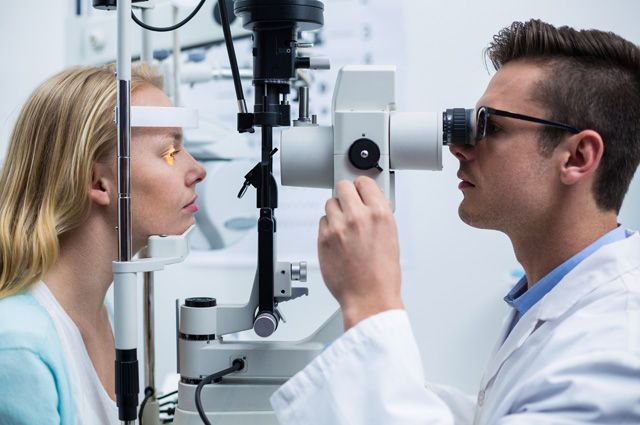Good vision is essential for daily life, yet many people underestimate the importance of routine eye examinations. Your eyes change as you age, and each stage of life presents unique risks and challenges. Regular testing is the best way to detect problems early, protect long-term vision, and maintain overall well-being. Whether you’re monitoring your child’s development, protecting your own eyesight, or supporting an aging family member, knowing how often to schedule eye tests is key.
Below is a clear guide on how frequently you should get your vision tested at every age and why it matters.
Vision Testing During Childhood (0–12 Years)
Eye health plays a crucial role in early development. Many learning and coordination issues are linked to uncorrected vision problems, making early testing essential. Vision screening should begin at birth to identify rare but serious conditions such as congenital cataracts.
A follow-up exam is recommended at 6 months to check eye alignment and early visual milestones. Between ages 3–5, a more comprehensive eye exam helps detect issues like amblyopia (lazy eye) or strabismus. Once children start school, vision tests should occur annually to monitor changes that may affect academic performance. Consistent exams are especially important today, as increased screen exposure can lead to eye strain. Parents scheduling an eye check in Sydney for their child can also discuss screen habits and prevention strategies with an optometrist.
Vision Care Needs for Teens and Young Adults (13–25 Years)
Teenagers and young adults often experience a rise in digital device use due to school, social media, and gaming. This can cause digital eye strain, dryness, and blurred vision. Hormonal changes and rapid growth can also impact prescription stability.
For this age group, eye exams every 1–2 years are recommended, even if no symptoms are present. Those who wear glasses or contact lenses should make yearly appointments. Athletes or students with heavy digital workloads may require more frequent checkups. Regular testing supports academic performance, safety during sports, and early detection of refractive changes.
Vision Health for Adults (26–40 Years)
Adults in their late twenties to forties often juggle work, family, and digital environments. Prolonged screen time can cause headaches, eye fatigue, or blurred vision. Although this age group is at a relatively low risk for major eye diseases, routine testing remains important.
A comprehensive eye exam every 2 years is recommended, though adults with chronic conditions like diabetes or hypertension should schedule annual visits. Early detection of subtle vision changes makes it easier to maintain comfort and performance, especially in demanding work settings.
Midlife Vision Monitoring (41–60 Years)
The early forties mark the beginning of presbyopia, a natural age-related condition that makes it harder to focus on close objects. This is when many adults begin relying on reading glasses or multifocal lenses.
At this stage of life, age-related eye conditions like glaucoma, macular degeneration, and cataracts become more common. Regular screenings are essential for prevention and early treatment. A vision test every 1–2 years helps track changes and ensure up-to-date prescriptions.
If you’re considering an eye check in Sydney at this age, many optometrists also offer advanced imaging to assess retinal health—something particularly valuable as risks increase with age.
Vision Testing for Seniors (60+ Years)
After age 60, the risk of serious eye conditions increases significantly. Cataracts, glaucoma, diabetic retinopathy, and macular degeneration become more common, and some can lead to permanent vision loss if untreated.
Seniors should receive a comprehensive eye exam every year. This ensures early detection and timely treatment of degenerative conditions. Eye tests at this age often include retinal scans, pressure checks, and assessments for contrast sensitivity and depth perception.
Seniors scheduling an eye check in Sydney should also consider regular monitoring of systemic health conditions like diabetes, which directly affect eye health.
Signs You Should Get Tested Immediately
Regardless of age, some symptoms require immediate attention. Sudden vision changes, light sensitivity, eye pain, flashes of light, excessive dryness, persistent headaches, or floating spots in your vision may signal an underlying issue. These symptoms can indicate conditions that require urgent care.
If you notice these warning signs, don’t wait for your next scheduled exam book a same-day appointment. Many clinics offer emergency exams, and mentioning that you’re seeking an eye check in Sydney can help you find specialists equipped for urgent care.
Conclusion:
Your eye health evolves throughout your life, and your testing schedule should evolve with it. From early childhood screenings to annual senior exams, consistent testing ensures clear vision, early detection, and long-term protection.
Regular vision tests are a simple but powerful way to protect one of your most important senses. By staying proactive, you safeguard your eyesight and support better overall health, no matter your age.
If you haven’t scheduled your next exam yet, now is the perfect time to put your vision first.



